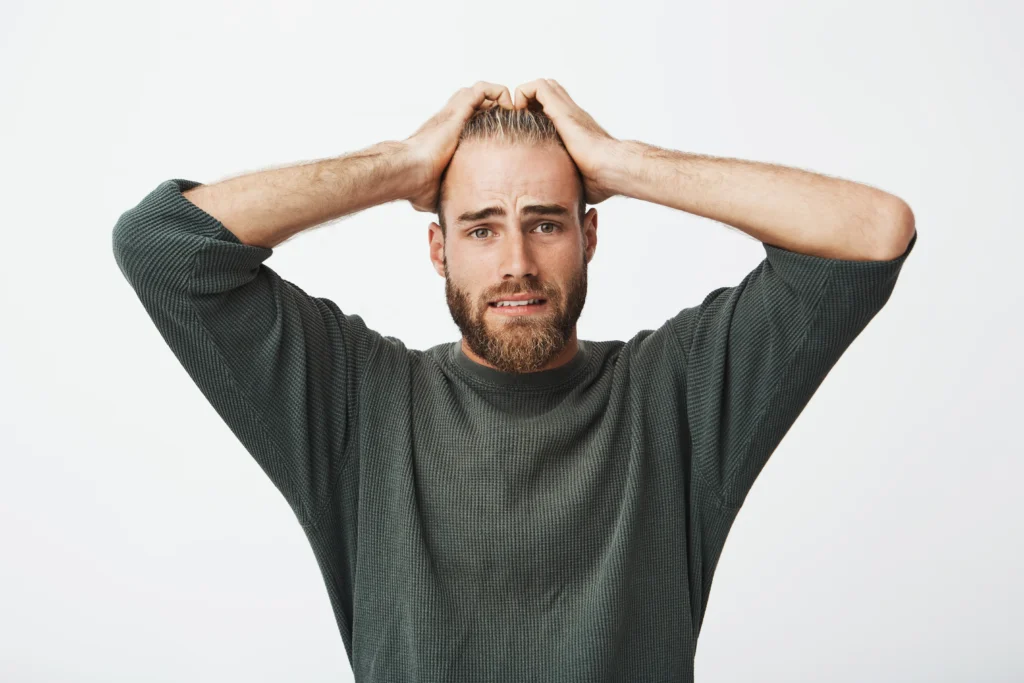Stress As a Cause of Hair Loss

Let us start out with a simple question: Is there a link between hair loss and stress? The simple and succinct answer is ‘Yes, there is!’ To be rather less succinct and a lot more pretentious, the Longman English Dictionary determines stress as “a physical or emotional factor that causes bodily or mental tension”. True to this definition, inordinate amounts of emotional or physical strain has been known to be at root for a number of different types of hair loss.
The most common, and indeed most short-lived, variety of stress induced baldness is known as telogen effluviam. In this less severe condition, excessive emotional or physical stress forces hair follicles into their resting state, effecting the whole scalp or just patches. Within a few months (around 3 or 4), the hair falls out in clumps. Although this may be very upsetting, indeed stressful- which probably won’t help- hair lost usually regrows in around 6 to 9 months.
Another condition linked with stress is Alopecia Areata. Although not the only cause of the disorder, intense stress is thought to be one of them, as stress has been known to cause chemical imbalance within the body, which effects the auto-immune system. Alopecia Areata involves white blood cells mistaking hair follicles for foreign bodies and attacking them. This, of course, stops hair growth and leads to usually patchy, if not whole scalp, hair loss within weeks. Like telogen effuviam, the hair may grow back of its own accord. However, it is more likely that medical help would be needed.
Trichotilomania is another disorder that may be linked to stress. Generally regarded as an impulse control disorder, and by-far the rarest of the conditions mentioned, it is believed to be augmented or even triggered by excessive stress. Trichotilomania itself is an irresistible urge to pull out hair from the scalp, eyebrows, eyelashes or other areas of the body and its link to stress may be as a release of negative feelings, such as anxiety, loneliness or tension.
If stress is the cause of your hair loss, then it does not have to be permanent, provided your stress is kept under control- be sure to talk to your doctor about these issues. However, some conditions, like alopecia areata, may be permanent and all these disorders require a long time to regrow hair lost. For permanent alopecia, Minoxodil is often spoken of as a possible treatment, but you must consider the disadvantages. Most do not experience hair regrowth and 1 in 3 do not notice any difference. There is also the need to use the medication indefinitely, with the necessary and inevitable running costs.
So what is the alternative to those of us with permanent or long-term temporary hair loss?
In my opinion, as someone who also suffers from pre-mature baldness, an advanced non-surgical hair system is the best option. It provides a realistic and financially viable hair cover, which is also practical, versatile and generally stress free.





